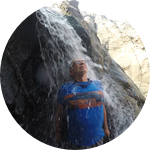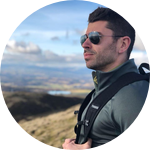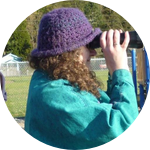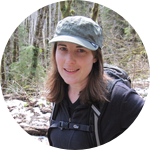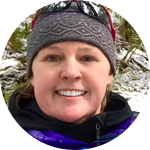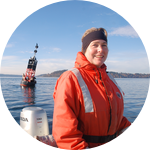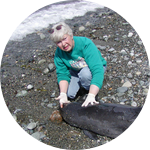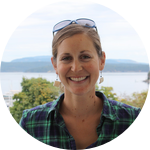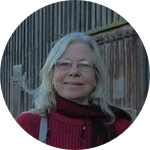Project Results
Isolates from 95 dead-stranded animals (74 seals/21 porpoises) were tested for resistance to a suite of 15 antibiotics. Of the 95 sampled, 85 (89%) (67 seals/18 porpoises) successfully yielded 144 isolates, with 37% resistant to at least one antibiotic and 26% multi-drug resistant (24% and 39% of seal and porpoise isolates, respectively). Overall, and by study region, porpoises were significantly more likely to harbor resistant organisms compared to seals. Significant differences between age classes were noted for the antibiotics amoxicillin, cephalexin, and cefovecin. Overall isolate resistance was significantly greater in porpoises than seals for several individual antibiotics. The relatively high and disparate prevalence of antibiotic resistance in these common, but ecologically dissimilar, marine mammals reflects a potentially large environmental pool of antibiotic resistant organisms in the Salish Sea or inherently different resistance gene patterns between the two species.
Antibiotic Resistance of Bacteria in Two Marine Mammal Species, Harbor Seals and Harbor Porpoises, Living in an Urban Marine Ecosystem, the Salish Sea, Washington State, USA
Stephanie A. Norman, Dyanna M. Lambourn, Jessica L. Huggins, Joseph K. Gaydos, Sandra Dubpernell, Susan Berta, Jennifer K. Olson, Victoria Souze, Alysha Evans, Betsy Carlson, Mandi Johnson, Rachel Mayer, Cathy King, and Alyssa Scott
About This Project
Antibiotic resistance, a global concern, is a significant health issue of animals and humans. Resistant bacteria, a growing presence in marine life, are derived from land via humans, animals, and agriculture. This is particularly troubling. Are resistant bacteria present in marine mammals of an urban ecosystem, the Salish Sea, in Washington State? We will sample dead locally stranded harbor seals and porpoises to detect resistant bacteria and their possible linkages to land sources.
Ask the Scientists
Join The DiscussionWhat is the context of this research?
Antibiotic resistant bacteria are documented in various marine species, though most wild animals have never been exposed to antibiotics. Resistance may be created when wastewater discharge, that carries antibiotics and resistant bacteria into terrestrial waterways, finds its way to the marine coastline where it can cause infectious disease in marine organisms. This is important from a "One Health" perspective which recognizes that the health of animals, humans, and the environment linked together. When resistant bacteria are introduced to animals or their environment, the animals may themselves become sick, develop further resistance, or they may become a reservoir and transfer the bacteria and resistance to humans and the environment.
What is the significance of this project?
Information on antibiotic resistance in marine species in Washington state's inland waters, also known as the Salish Sea is limited. Preliminary work reported resistance in young stranded harbor seals in rehabilitation (Lockwood et al. 2006) and in local endangered southern resident killer whale (orca) breath (Raverty et al. 2017). A larger dataset with multiple species, age classes, and locales is needed to determine if resistant bacteria exhibit patterns within this urban marine ecosystem and if they might pose a threat to marine mammal health, including that of the orcas NOAA Fisheries West Coast Region - Killer whale information page. Study results will inform local human and veterinary health officials, as well as raise public awareness of drug resistance.
What are the goals of the project?
The objective of this study is to evaluate the presence and distribution of antibiotic-resistant bacteria in Salish Sea marine mammals. Specifically we will:
1) describe the presence and extent of antibiotic-resistant bacteria
2) determine differences in resistance between seals and porpoises
3) determine geographic patterns
We will collect fresh dead-stranded harbor seals and harbor porpoises (69 each species; total =138), perform autopsies, and swabs of the inside of the large intestine and any noted lesions during autopsy. Bacterial colonies that grow in the lab will be tested for susceptibility (or resistance) to a suite of commonly used antibiotics in veterinary and human medicine. Read more details about our antibiotic sensitivity testing protocol under the Methods section.
Budget
The majority of this funding ($5800) is allocated towards the actual cost of running the bacterial cultures and antibiotic sensitivities analyses for approximately 138 samples ($42/sample) to be collected over a year in roughly equal numbers of seals and porpoises as well as between northern and southern sampling regions. The culture swabs and transport costs are included in the per-sample cost.
$1000 in funding will be allocated time towards analyzing the culture and sensitivity data.
To support an educational and public outreach component, we will allocate $100 to produce an informational hand-out to be distributed at scientific and stakeholder meetings, as well as at local venues and events focused on the environment. An electronic version will be post on Orca Network's website to help share our findings and increase awareness about the problem of antibiotic resistance in the marine environment.
An additional $100 will be allocated to cover any unforeseen small supply needs.
Endorsed by
 Project Timeline
Project Timeline
The project plan for Year 1 is to collect the samples from stranded harbor seals and harbor porpoises within the Salish Sea of Washington state over a year's time beginning in early October 2018. During Year 2 we will compile, analyze, and summarize the results of the culture and antibiotic sensitivity testing. The study results will be written up for submission to a peer-reviewed journal. The informational hand-out will also be completed during Year 2.
Aug 21, 2018
Project Launched
Oct 01, 2018
Begin collection of bacterial culture swabs from dead stranded harbor seals and porpoises in the Salish Sea
Sep 30, 2019
Complete collection of bacterial swabs from dead stranded harbor seals and porpoises
Dec 31, 2019
Complete compilation, analyses, and summarization of culture and antibiotic sensitivity results
Sep 30, 2020
Complete write-up of study results and submit to peer-review journal for publication
Meet the Team
Affiliates
Affiliates
Affiliates
Affiliates
Team Bio
The team members combined have more than 30 years' experience with marine species and diseases. They are very passionate about marine ecosystem health and have worked collaboratively on a number of projects related to marine mammal health. Various skills such as veterinary medicine, biology, statistical, data analyst, and project management come together in this project. As a team, we are intimately familiar with the targeted species in this project, as well as the geographical landscape.
Stephanie Norman
I am a wildlife epidemiologist and veterinarian in the Pacific Northwest. I received veterinary degree from Texas A&M University, a Master of Science in epidemiology from the University of Washington, Seattle, and a PhD in wildlife epidemiology from the University of California, Davis. Since 1999, I have been involved in the investigation of health and diseases of marine animals for various organizations and agencies. An admirer of all ocean life, my research and epidemiologic work covers marine life of all sizes, from corals to top level predators. My areas of interest include understanding and interpreting aspects of ocean health, including pathogen transmission in the marine environment, as well as those of concern to human/public health. I am also interested in quantifying inherent differences in species susceptibility as well as the effects of natural and human-related stressors on outcomes of marine diseases. The basis of my research efforts is to be able to provide the knowledge needed to help mitigate human impact on marine species and raise awareness of ocean health and the connection to human health.
You can view more about my work and publications on my website at www.marine-med.com, follow me on Facebook @MarineMed1 and on Twitter @whaledocsteph.
Susan Berta
I am passionate about the ocean and particularly the cetaceans of the Salish Sea, falling in love with humpbacks and orcas in SE Alaska in the late 1990s. I have co-led our Marine Mammal Stranding Network for 20 years, first with the WSU Beach Watchers, then with Orca Network. I have been fortunate enough to be able to learn under the direction of Dr. Stephanie Norman, who has led our team through many interesting necropsies and marine mammal health studies, showing us the value of learning about the health of the ocean and marine mammals through the lab results from many interesting cases.
I have been co-author of several publications on environmental stewardship and monitoring through WSU Beach Watchers, and on whales and marine mammals along with our CPSMMSN team. I have presented at Research and Environmental Education conferences for over 20 years.
Orca Network has a large social media following and will be actively sharing this project with our broad base of followers and supporters. You can find out more about Orca Network on our website at orcanetwork.org and Facebook page @OrcaNetwork.
Jessie Huggins
Jessie is the stranding coordinator for Cascadia Research Collective and has been with them since 2004. She takes the lead on coordinating and conducting Cascadia's responses to stranded marine mammals throughout Washington State and has been involved with field work and other various components of our long-term photo-ID projects. In addition she has participated in many collaborative projects with other marine mammal researchers within Washington State and beyond.
Cathy King DVM MS PhD
Cathy King is the CEO of World Vets, an international veterinary aid organization with programs in forty five counties. She is also a conservation medicine veterinarian and scientist at EcoMarine Institute. She has a BS in veterinary science, an MS in Animal Science, a PhD in Animal Physiology and has a Doctor of Veterinary Medicine (DVM) degree. Dr King was also awarded an honorary doctorate from Western University of Health Sciences College of Veterinary Medicine. She interned at the San Diego Zoo Center for Reproduction in Endangered Species and has over 20 years of clinical veterinary experience. She has also served as an adjunct professor at Washington State University College of Veterinary Medicine. In addition to extensive international development experience she also provides veterinary support for marine mammal stranding cases in the state of Washington.
Dyanna Lambourn
I grew up wanting to work with wildlife in particular marine mammals, and always had a interested in veterinary medicine and diseases, which works out well since I have studying and working with marine mammals for the last 25+ years.
Degrees earned: Oregon State University, Corvallis, Oregon - B.S. 1994 Fisheries/Marine Resources
Pierce College, Tacoma, Washington A.A. 1988 Veterinary Technology
My background in conducting marine mammal research and stranding response throughout Washington State since 1988 makes me the best scientist to take on this project.
In addition, the following have prepared me to conduct this project: Longtime work on marine mammal strandings and other wildlife species in Washington State, including responsibility for investigating disease, contaminants, and life history parameters and tagging and telemetry research on marine mammals. Responsible for veterinary technician duties, support for capture, tagging and anesthesia projects. Perform necropsies, collect biological specimens, health assessments and coordinate stranding response. Assist with marine mammal disentanglement events.
Some of my relevant publications:
Norman, SA, Z Winfield, BH Rickman, S Usenko, M Klope, S Berta, S Dubpernell, H Garrett, MJ Adams,D Lambourn, et al. 2017. Persistent organic pollutants and hormone level in a harbor porpoise (Phocoena phocoena) with B-cell lymphoma. Arch Environmental Contaminants and toxicology.
Noel M, SJ Jeffries, DM Lambourn, et al. 2015 Mercury Accumulation in Harbour Seals from the Northeastern Pacific Ocean: The Role of Transplacental Transfer, Lactation, Age and Location. Arch Environ Contam Toxicol.
Sandra M. Dubpernell
Sandra Dubpernell, MS
After recovering from a massive infection from a ruptured appendix as a small child, I became intrigued by diseases and their causes.
I pursued this interest in college (Gettysburg) and grad school (Fairleigh Dickinson University) and received a Masters of Science degree. After spending 30 years in a laboratory testing for viruses, I relocated to Whidbey, volunteered for investigating dead marine mammals and joined the Central Puget Sound Marine Mammal Stranding Network in 2002. Since then I have assisted Dr. Stephanie Norman in hundreds of necropsies on seals, sea lions, porpoises and gray whales by collecting samples and recording the necropsy findings via written and photographic reports. I have been included on scientific papers published by Dr. Stephanie Norman but have not been principal author on any.
I do maintain an archive of the thousands of documents and images that the CPSMMSN has created during the past 16 years.
Jennifer Olson
I have always been interested in researching marine mammal health since these top level predators are excellent indicators of overall ecosystem health. My primary research interests are investigating human impacts on marine mammals. I have 9+ years of experience in the marine mammal field and received a M.S. in Marine & Estuarine Science from Western Washington University in 2013. For the past five years, I have worked as the San Juan County Marine Mammal Stranding Network Coordinator & Data Specialist for The Whale Museum in San Juan County. I enjoy collaborating with other networks to investigate region-wide trends and have been part of several publications related marine mammal health in the Pacific Northwest.
Victoria Souze
Victoria is active in the marine mammal world and is the Principal Investigator for the Whatcom Marine Mammal Stranding Network. The network responds to all marine mammals in distress or deceased in the Whatcom County area. She has been with the Network since its inception in 2007. She is passionate about marine mammals and has been working on tour boats in the Salish Sea educating the public about the marine mammals in the Salish Sea for 22 years. She has recently launched a program that is taking a curriculum into the primary and middle schools in Whatcom County to educate about the marine mammals of the Salish Sea and the hazards that they face from pollution to human interaction.
She Completed a degree in Fisheries at Grays Harbor College and Marine Biology at Western Washington University.
Additional Information
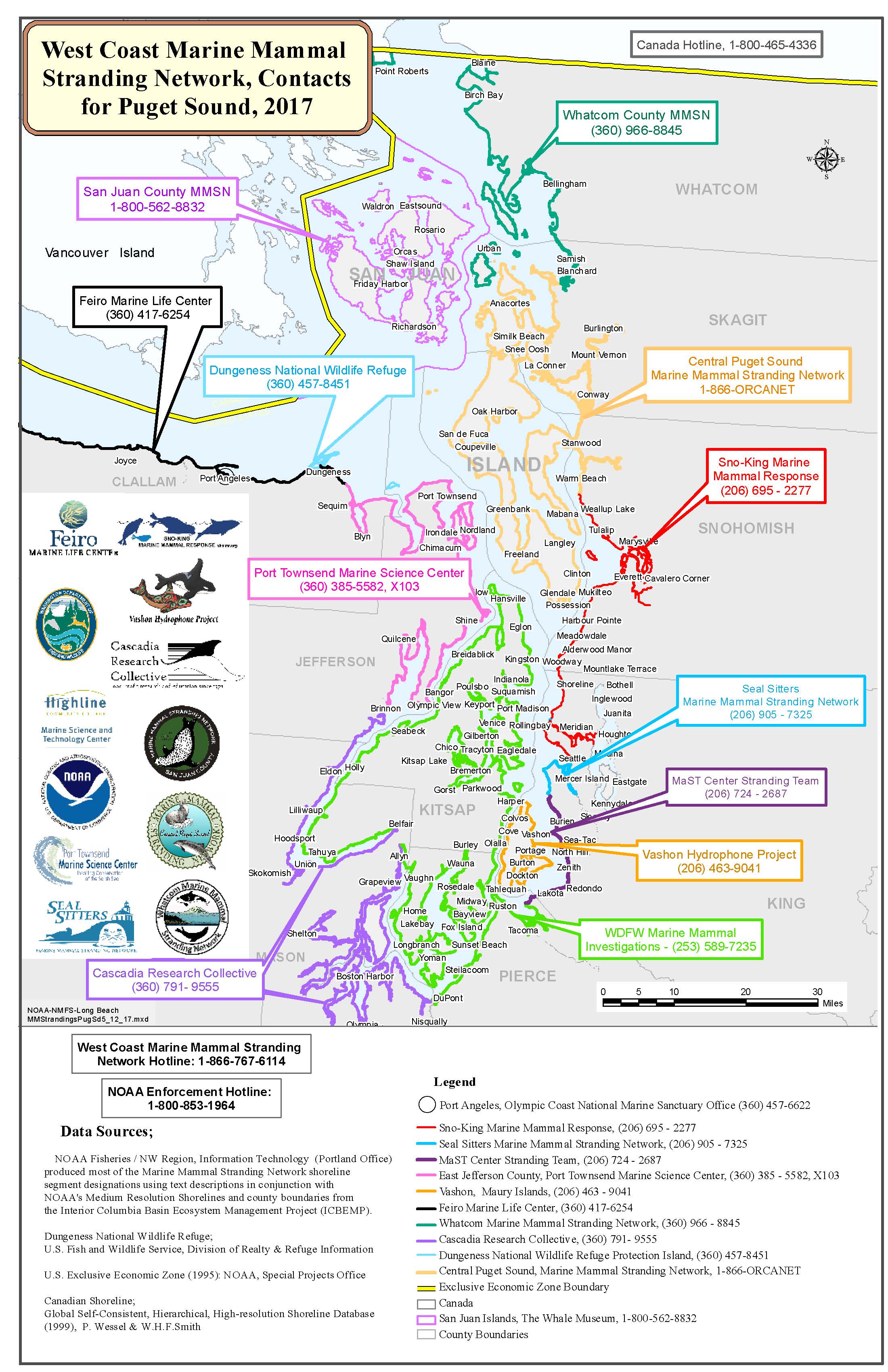 Marine mammals will be sampled with the assistance of Central Puget Sound Marine Mammal Stranding Network, Washington Department of Fish and Wildlife (https://wdfw.wa.gov/), San Juan County Marine Mammal Stranding Network (Whale Museum) (https://whalemuseum.org/), World Vets (http://worldvets.org/), Cascadia Research Collective (http://www.cascadiaresearch.or...), and the project team members. There is a formal marine mammal stranding response network administered by NOAA Fisheries that will facilitate collection of samples. A map of the study area (Salish Sea, also referred to as Puget Sound) is included here. The link to the marine mammal stranding network website is: http://www.westcoast.fisheries...
Marine mammals will be sampled with the assistance of Central Puget Sound Marine Mammal Stranding Network, Washington Department of Fish and Wildlife (https://wdfw.wa.gov/), San Juan County Marine Mammal Stranding Network (Whale Museum) (https://whalemuseum.org/), World Vets (http://worldvets.org/), Cascadia Research Collective (http://www.cascadiaresearch.or...), and the project team members. There is a formal marine mammal stranding response network administered by NOAA Fisheries that will facilitate collection of samples. A map of the study area (Salish Sea, also referred to as Puget Sound) is included here. The link to the marine mammal stranding network website is: http://www.westcoast.fisheries...
Orca Network (www.orcanetwork.org) is a formal long-term (early 1990's) member partner of the stranding network and administers a stranding program, Central Puget Sound Marine Mammal Stranding Network (CPSMMSN) (http://www.orcanetwork.org/Main/index.php?categories_file=Strandings). Volunteers with CPSMMSN respond to several hundred reports of stranded marine mammals, often collaborating with other regional network members.
References:
(1). Blackburn JK, Mitchell MA, Blackburn M-CH, et al. 2010. Evidence of antibiotic resistance in free-swimming top-level marine predatory fishes. Journal of Zoo and Wildlife Medicine 41(1):7-16.
(2). Stewart JR, Townsend FI, Lane SM, et al. 2014. Survey of antibiotic-resistant bacteria isolated from bottlenose dolphins Tursiops truncatus in the southeastern USA. Diseases of Aquatic Organisms 108:91-102.
(3). Oates SC, Miller MA, Byrne BA, et al. 2012. Epidemiology and potential land-sea transfer of enteric bacteria from terrestrial to marine species in the Monterey Bay Region of California. Journal of Wildlife Diseases 48:654−668.
Project Backers
- 148Backers
- 128%Funded
- $9,010Total Donations
- $56.19Average Donation
